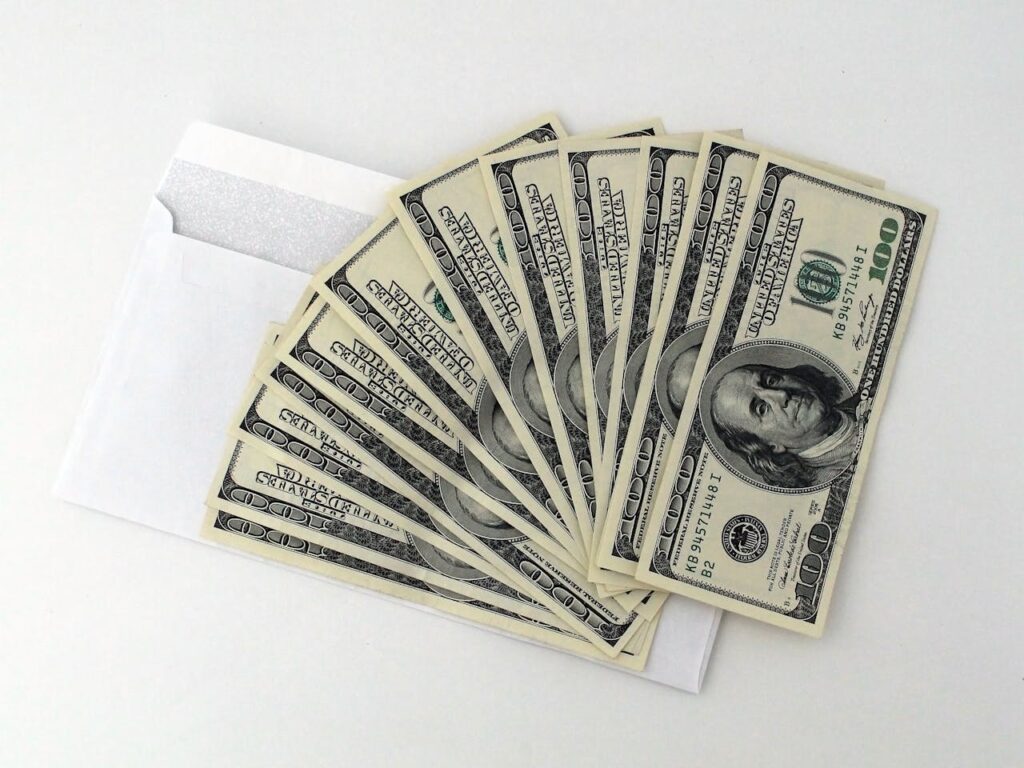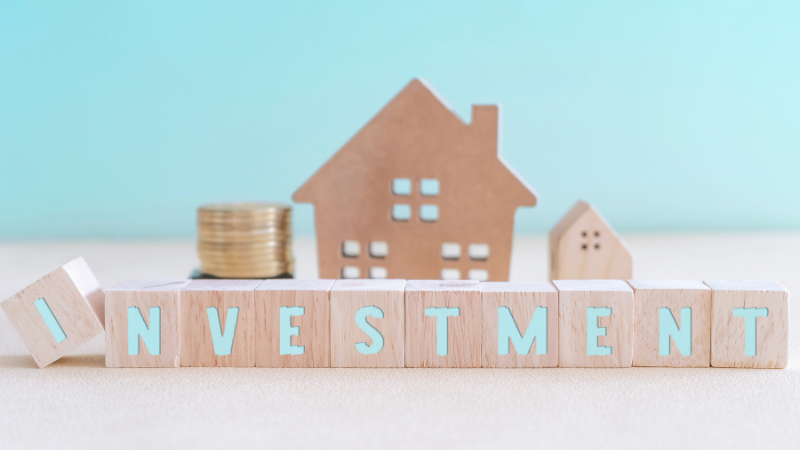Increase Your Property Value And More With a Cash-Out Refinance for Investment Properties
Ever wondered how to unlock the hidden value in your investment property? A cash-out refinance for investment properties might be the key. This strategic financial tool allows you to tap into the equity you’ve built up, giving you a lump sum of cash to fuel your real estate ambitions. According to Freddie Mac, the average equity cashed out from a cash-out refinance was $60,214 in 2021. Whether you’re looking to renovate your existing rental, expand your portfolio with another property, or simply free up capital for other investments, a cash-out refinance for investment properties offers a world of possibilities.
But how exactly does it work? And is it the right move for you? Dive into this article to learn the ins and outs of cash-out refinance for investment properties, explore its benefits and drawbacks, and discover if it can be the key to unlocking your real estate success.
What Is a Cash-Out Refinance?
A cash-out refinance replaces your existing mortgage with a new, larger loan. The difference between the remaining balance on your old mortgage and the new loan amount is provided to you in cash. During periods of rising interest rates, cash-out refinances make a larger share of all refinances, making them a popular option for homeowners looking to unlock their equity. This cash can be used for many different reasons, including renovations, investing in other opportunities, or debt consolidation. For those looking to use a cash-out refinance for debt consolidation, a cash-out refinance can simplify your debt repayment by combining your debt payments with your mortgage. Debt repayment has never been more streamlined with one, easy monthly payment. For more information on refinancing, check out our refinance page.
How a Cash-Out Refinance for Investment Properties Work
When you obtain a cash-out refinance for investment properties, the new loan pays off the old mortgage, and the difference between the two amounts, also often referred to as “home equity,” is given to you in cash. Typically, the maximum loan-to-value (LTV) ratio for a cash-out refinance on an investment property is 70-75% depending on the lender and your borrower qualifications. This means that you can borrow up to 75% of the property’s appraised value. While the funds from a cash-out refinance can be used for many reasons, if you decide to use the cash for business purposes, like renovating your investment property, the interest on the new loan may be tax-deductible.

Cash-Out Refinance for Investment Properties Requirements
Cash-out refinance for investment properties requirements can vary significantly between lenders and depending on the type of loan you choose. Generally, you should aim to have a credit score of 620 or above and at least 25-30% equity in your investment property. However, requirements vary by lender. (If you want specific numbers, don’t hesitate to reach out!).
Why Get a Cash-Out Refinance for Investment Properties?
There are several reasons why investors choose a cash-out refinance for investment properties. It unlocks the built-up equity in your property, giving you access to a lump sum of cash that can fuel your real estate goals. Property values have risen a lot in the last five years:
A cash-out refinance for investment properties can be used to access this equity for improvements like renovations to boost rental income, or even to purchase another rental property and expand your portfolio. For some people, it might be a chance to finally pay down high-interest debt to free up cash flow in the long run. This cash can even act as an emergency fund to cover any unexpected repairs or other unforeseen circumstances. Ultimately, a cash-out refinance allows you to leverage your investment property’s potential and achieve your financial goals faster.
Property values have risen which means home equity is up — and that can change. You might not always be sitting on this much equity, which is why it’s important to take advantage of the window of opportunity that you have.
For example, say you are a real estate investor with one investment property under your belt. You are interested in growing your portfolio but you think that you don’t have the cash for a down payment on another investment property. It turns out, that after speaking with your lender, you realized that you could pull out around $100,000 in equity at a favorable rate from your current investment property, and use it as a down payment on a multi-unit STR property.
Here is a situation where “you”, the real estate investor in the example, have effectively doubled their rental portfolio utilizing the equity they’ve built up. No personal loans taken out. No credit cards. No missed opportunities to grow their portfolio.
Pros and Cons of Cash-Out Refinance for Investment Properties
Pros:
- Allows you to unlock equity in your investment property
- Improves cash flow
- Cash can be used to diversify your investment portfolio
- Provides a lower-interest option for debt consolidation
- Potential for lower interest rates
Cons:
- Potential to be over-leveraged
- Market risk if the real estate market declines
- Closing costs

How to Get a Cash-Out Refinance for Investment Properties
1. Determine Your Financial Goals
When planning a cash-out refinance for investment properties, it’s important to determine how much cash you need and what you’ll be using it for. Consider your specific financial goals, such as:
- Making home improvements to increase property value
- Purchasing another property to expand your investment portfolio
- Paying down personal debt to reduce interest payments and improve your credit score
- Creating an emergency fund for financial security
Having a clear purpose for the cash ensures that the refinance aligns with your overall financial strategy and helps you make the most of the equity you’ve built up in your investment property.
2. Check Your Eligibility
To qualify for a cash-out refinance for investment properties, you typically need to have at least 20-30% equity in the property. The appraised value should support a new loan that is 70-75% of the property’s value (LTV ratio). Additionally, you should aim for a credit score of 620 or higher, depending on the specific requirements of the lender.
3. Gather Your Documents
To apply for a cash-out refinance for investment properties, you’ll need to gather several important documents, including:
- Proof of Income: Grab copies of your W-2s or 1099 forms for the past two years if you’re employed. Self-employed individuals may need recent tax returns, bank statements, or profit & loss statements depending on the type of loan. If you’re applying for a DSCR loan, though, you don’t need any proof of income at all.
- Tax Returns: Provide personal or business tax returns for the past two years.
- Homeowner’s Insurance: Proof of current homeowner’s insurance covering the investment property is essential.
- Debt Statements: Gather statements outlining your existing debts, including credit cards, personal loans, etc.
- Title Insurance: Locate a copy of your title insurance received when you purchased the property.
Keep in mind that each lender will have their own required documentation for each specific loan, but these are the key documents to have on hand.
4. Find a Lender
When shopping around for a lender, get multiple quotes.
Getting multiple quotes from lenders keeps you informed and can help you secure the best investment property refinance loan. Compare not just interest rates, but also closing costs and loan terms. Don’t be afraid to ask questions during the process. For flexible loans, competitive rates, and personalized service, Defy Mortgage has got you covered. Contact us and our mortgage advisors can help you navigate the refinancing process and find the best investment property mortgage loan for your investment goals. By shopping around and asking the right questions, you can ensure you’re getting the best fit for your needs.
5. Apply for the Cash-Out Refinance
After comparing your options, choose the lender that offers the most competitive terms, including interest rates and closing costs, while also aligning with your financial goals. Once you’ve made your selection, formally apply for the cash-out refinance by submitting the documents you gathered earlier. Keep in mind that some lenders may require additional documents depending on their application process.
6. The Underwriting Process
Once your application is submitted, the lender will kick off the underwriting process to ensure everything meets their requirements. First, they’ll order an appraisal to determine the current market value of your investment property and the amount of equity you have. Next, the lender will verify all the submitted documents, along with details related to the property itself, which will ensure everything is accurate and meets their lending criteria.
7. Loan Approval and Closing
Once the lender has reviewed everything, you’ll receive their final decision. If approved, congratulations! You’ll be given a final loan disclosure outlining the exact terms, interest rate, and closing costs associated with your cash-out refinance. Take your time to review these documents and don’t hesitate to ask any questions before signing. Finally, it’s closing day! This is where you’ll finalize the refinance by signing the official paperwork. Once everything is complete, you’ll receive the cash proceeds minus any closing costs.

Alternatives to Cash-Out Refinance for Investment Properties
A cash-out refinance for investment properties may seem appealing, but remember it replaces your current mortgage with a new loan entirely. This means you’ll be locked into a new interest rate and loan term. It’s important to compare rates and ensure the cash-out refinance will be a lower rate than your current mortgage.
If you’re looking for more flexibility to access funds for home improvements, consider a home equity line of credit (HELOC). HELOCs function similarly to credit cards, allowing you to borrow against your home’s equity with a revolving line of credit. Another alternative is a home equity loan, which provides a lump sum of cash with a fixed interest rate and repayment schedule, so you can keep your original mortgage while still accessing your home equity.
Cash-Out Refinance for Investment Properties FAQs:
- What is a cash-out refinance?
A cash-out refinance is a way to tap into the equity you’ve built in your investment property. You replace your existing mortgage with a new, larger loan and receive the difference in cash.
- Who would benefit from cash-out refinancing an investment property?
Investors who want to unlock equity for various purposes can benefit. This could be for renovations, expanding their portfolio with another property, or even paying off higher-interest debt.
- What are the requirements for a cash-out refinance?
Cash-out refinance requirements can vary significantly depending on the lender and the type of loan you get.
- Can I use a cash-out refinance to pull money out of an investment property?
Yes, that’s one of the main reasons why people get a cash-out refinance. You take out a larger loan than what you currently owe and receive the difference in cash.
- How much equity do I need for a cash-out refinance for investment properties?
Lenders typically require a minimum of 20-30% equity in the investment property. This means the new loan amount can’t exceed 70-80% of the property’s appraised value.
- What’s the maximum LTV for a cash-out refinance for investment properties?
The maximum loan-to-value (LTV) ratio for a cash-out refinance on investment properties is typically 70-75%, depending on the lender and loan type.
- Why should I get an investment property refinance?
Refinancing an investment property can potentially lower your interest rate, free up cash for a variety of reasons, or consolidate existing debts.
- What are the pros and cons of getting a cash-out refinance for investment properties?
Pros:
- Access cash from your investment property
- Improve cash flow
- Freed-up cash can be used to diversify your portfolio
- Funds can be used to consolidate debt
- Potentially lower interest rate
Cons:
- Closing costs
- Risk of over-leveraging the property
- Market risk if the property market declines
- What are the alternatives to cash-out refinancing?
Some alternatives to cash-out refinancing is getting a HELOC or a home equity loan. These options are similar to a cash-out refinance, except a HELOC is a revolving line of credit and a home equity loan is a separate loan that’s taken out alongside your original mortgage.
- What credit score do I need to refinance an investment property?
Minimum credit score requirements vary depending on the lender and the loan type. At Defy, we require a minimum credit score of 620 or above for most of our loan options.
- Am I going to be taxed on a cash-out refinance?
No, the cash you receive from a cash-out refinance isn’t typically considered taxable income. However, it’s recommended to consult a tax advisor for specific information related to your financial situation.




